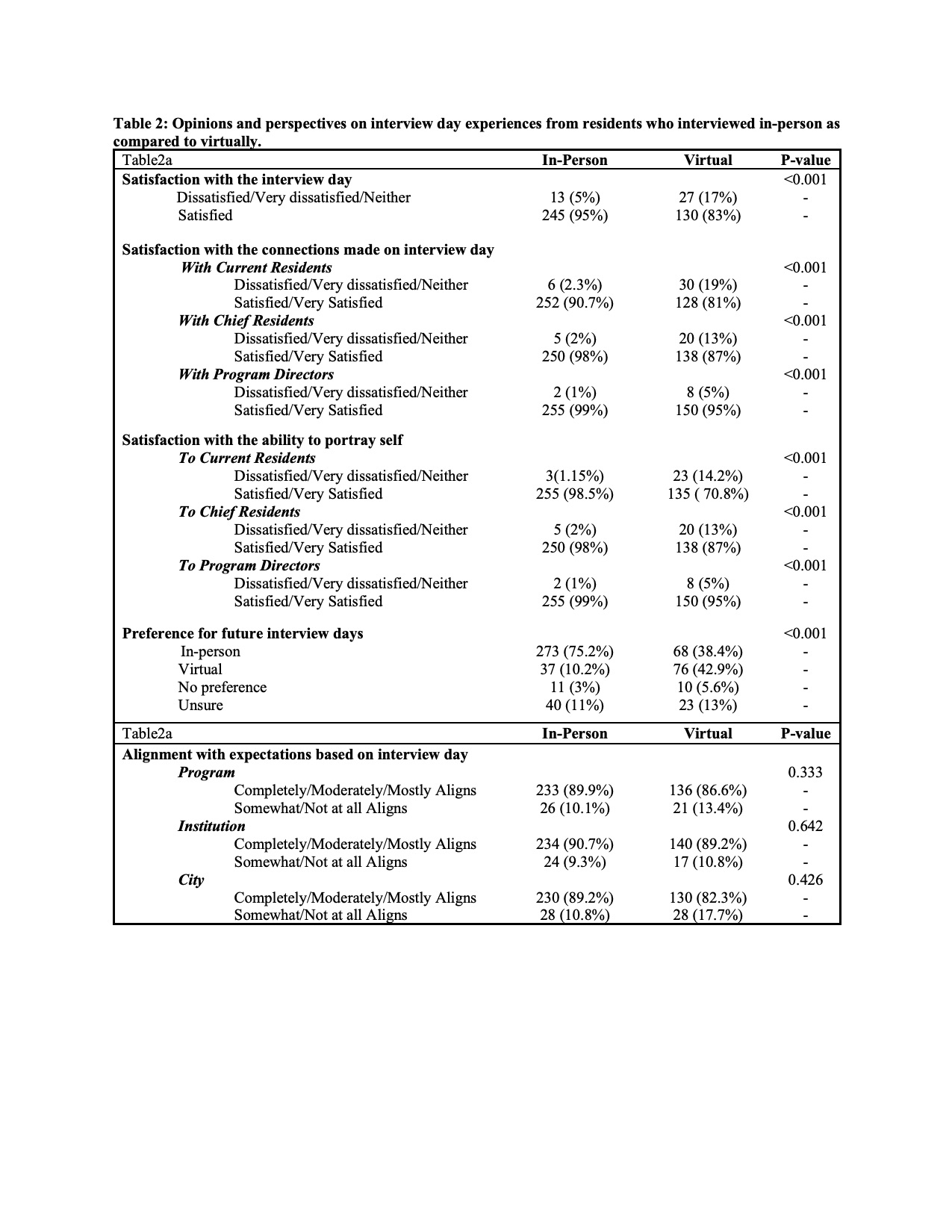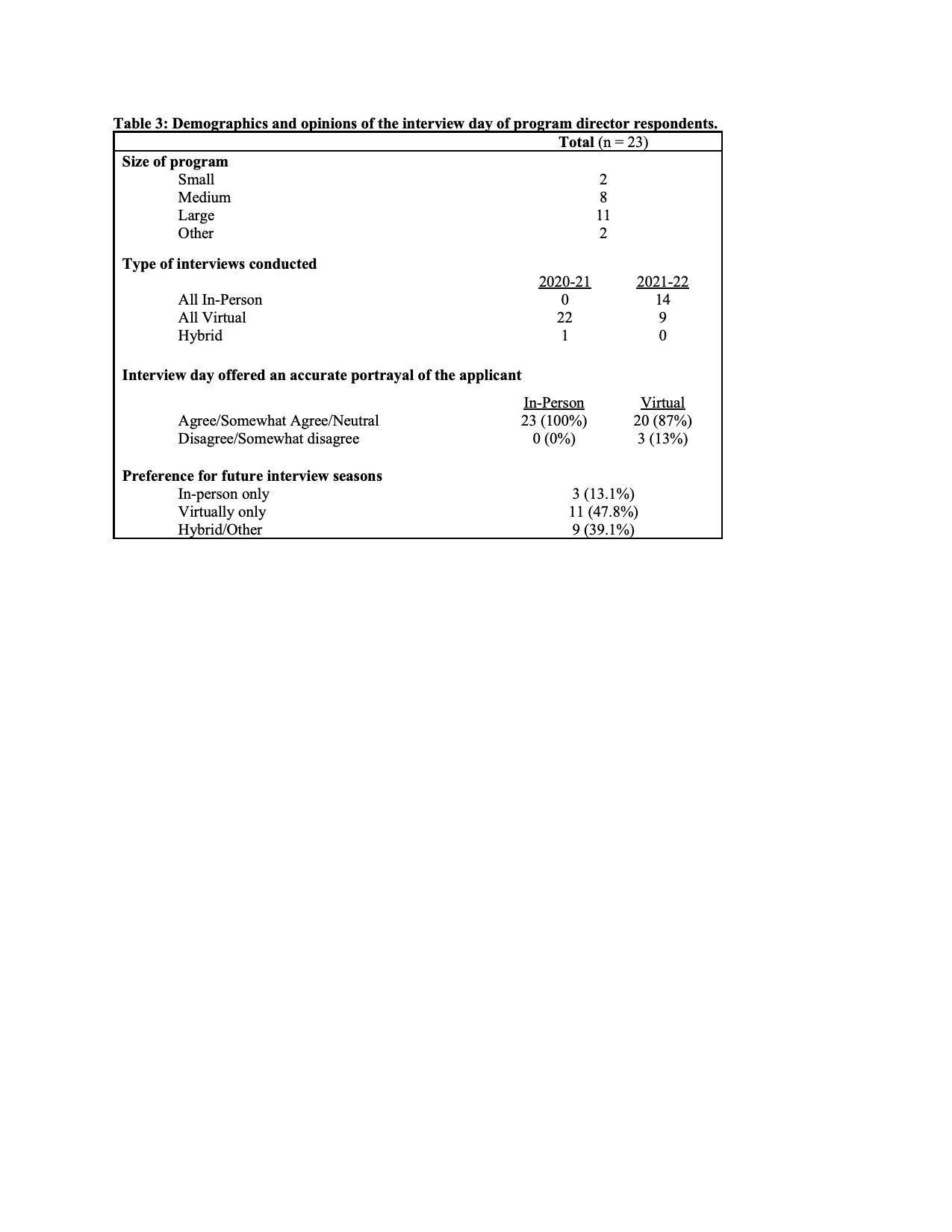Medical Education: Resident
Medical Education 7: Resident 2
555 - Virtual Recruitment during the COVID-19 Pandemic: Temporary Solution or Necessary Evolution?
Saturday, April 29, 2023
3:30 PM - 6:00 PM ET
Poster Number: 555
Publication Number: 555.229
Publication Number: 555.229
Kelly Anne McCullagh, Boston Children's Hospital, Brookline, MA, United States; Zachary A. Winthrop, Boston Children's Hospital, Brookline, MA, United States; Laura Chiel, Boston Children's Hospital, Boston, MA, United States; Alan Schwartz, University of Illinois at Chicago, Chicago, IL, United States; Colin M.. Sox, Boston University School of Medicine, Newtonville, MA, United States; Ariel Winn, Boston Children's Hospital, Weston, MA, United States

Kelly Anne McCullagh, MD (she/her/hers)
Fellow
Boston Children's Hospital
Brookline, Massachusetts, United States
Presenting Author(s)
Background: In the context of the COVID-19 pandemic (AY 2020-21), the AAMC required pediatric residency programs to conduct all interviews virtually. No multi-center study has compared virtual to in-person residency interviews.
Objective: Our objective was to compare the experiences of residents who interviewed virtually to those who interviewed in-person. Our primary outcome was satisfaction with the interview process. Program director (PD) satisfaction was also examined.
Design/Methods: We conducted a cross-sectional survey of pediatric residents and PDs at 23 United States training programs during 2021-2022. Surveys explored satisfaction with the interview day, perceived connections, impact on rank list formation, and alignment of experiences during residency with impressions gathered during the interview day. Responses of residents who interviewed virtually were compared to those who interviewed in-person.
Results: Participants included 551 residents (38% response rate) and 23 PDs (100% response rate). Residents who interviewed in-person experienced more missed days of school and higher interview-related expenses than those who interviewed virtually (Table 1). Compared to residents who interviewed in-person, those who interviewed virtually were more dissatisfied with the interview day and their ability to make connections with current residents, chief residents, and PDs (Table 2a). Regardless of the interview format, residents felt their experiences during residency aligned with the expectations formed during the interview day (Table 2b). PDs significantly preferred virtual or hybrid interviews to in-person interviews, although their ability to gather accurate portrayals of applicants during in-person and virtual interview days did not significantly differ (Table 3).
Conclusion(s): In a national cohort of pediatric residents, significantly more who interviewed virtually were dissatisfied with their interview day experiences than who interviewed in-person. Reported benefits of virtual interviews included that they were less expensive, caused less missed days of school, and provided applicants a comparably sufficient portrayal of the program. Further research is needed to understand whether virtual interviews could be enhanced to better replicate the in-person experience for all trainees.
.jpg)


